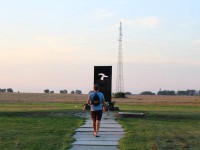Make Discussion, Not War: Let’s Stop the War for Memory and Monuments

Joint statement by the Board andthe Historical Memory and Education working group of the EU-Russia Civil Society Forum:
These days we commemorate the 75th anniversary of the end of World War II. Unfortunately, the coronavirus pandemic thwarted the reminder of a common victory over Nazism around the world. In addition to the fight against the unexpected global pandemic, the dignified celebrations of the end of the war were disrupted by another war — the war for memory and monuments.
This war on memory and monuments is nothing new. If we watch more than 10 years ago, we can see that already in 2007 wars on memory and monuments existed. For example, the dispute between Estonia and Russia over the Bronze Soldier in Tallinn. By the time several such disputes around the issues of Collaboration and Occupation appeared. The war in Ukraine showed another example of how history became a weapon and a piece of politics. On the occasion of the 75th anniversary this becomes even more apparent. The dispute between Poland and Russia over the beginning of the war at the turn of the year 2019/20. The failure to invite the Russian President to the D-Day commemoration and to the commemoration of the liberation of the Auschwitz-camp.
The last act of this undignified, politicized war is currently taking place between Prague and Moscow because of removing the statue of Marshal Konev. This struggle pointed to many contemporary problems in the field of historical memory – especially the minimum mutual desire to understand other opinions and to look critically at one’s own past.
Representatives of Prague 6 district demonstrated their insensitivity to the perception of history in today’s Russia with their inappropriate comments about the absent anti-coronavirus mask for Konev. However, the Russian highest authorities reacted in an inappropriate way too when they decided to criminalize the representatives of Prague 6 and interfere in the internal affairs of another state. As a result, the mayor of Prague 6 must now have security available for 24 hours a day due to threats from the Russian side, while anti-Russian feelings among a significant part of Czech population have intensified. Isn’t that a strange way to commemorate the end the Second World War?
It is necessary to try understand different opinions with a respect, to start discussing and listening to each other. The Czechs should hear what role the victory of the USSR over Nazism plays in Russian national memory. And the Russians should learn that history is not just black and white, and the fight of the Red Army with Hitler’s Germany was only one part of common history of the end of World War II and the following period.
The situation in Czechoslovakia may serve this well — when the Red Army on May 9th, 1945 entered Prague, the city was already liberated from the Nazis also thanks to the involvement of some units of the Russian Liberation Army in the local resistance, and the western half of Czechia had been liberated by the American army. And it would also be important to hear that NKVD units came to Prague after the Red Army and helped build a communist regime that provoked subsequent state terror with thousands of victims. Czechs also perceive Konev’s role in suppressing the 1956 Hungarian uprising and his intelligence role before the Soviet occupation of Czechoslovakia in 1968. Konev’s monument in Prague established in 1980 was much more understood as a monument to the Soviet occupation than the 1945 liberation (which in the Czech Republic is commemorated by thousands of monuments and graves of fallen Red Army soldiers).
Insensitivity to important historical moments of individual nations and, on the other hand, a black-and-white view of history seeking only one truth and criminalizing other views are very dangerous. Instead of an effort to understand, recently we see in Russia, but also in other European countries, a growing tendency to politicize history and misuse important historical moments for one-sided interpretations that serve to promote current political interests. This leads to increasing tension and animosity between states and nations. We should strive to provide an environment where professional historians, and not the politicians, deal with interpreting the history. Don’t use history as a political weapon.
If we do not want further wars, let’s stop this war for memory and memorials. Different, opposite and conflicting interpretations of history is one of the vital characteristics of historiography. Although it is often impossible to achieve consensus, this doesn’t preclude us from being able to discuss and connect despite these differences. Let’s find what connects us, let’s talk and listen to each other in peace. Only then we can move on. Make discussion, not war.
April 27, 2020



